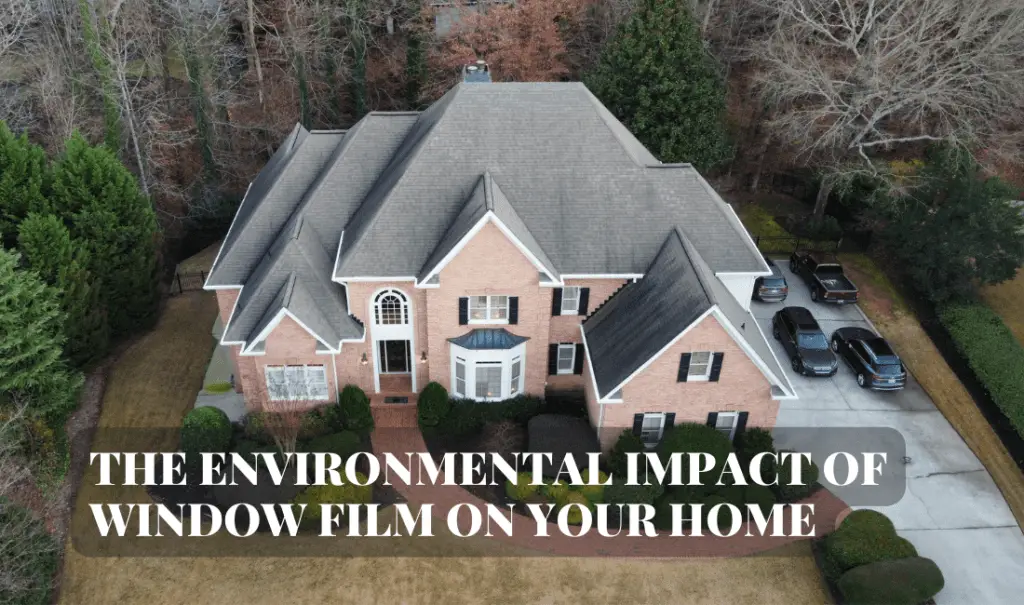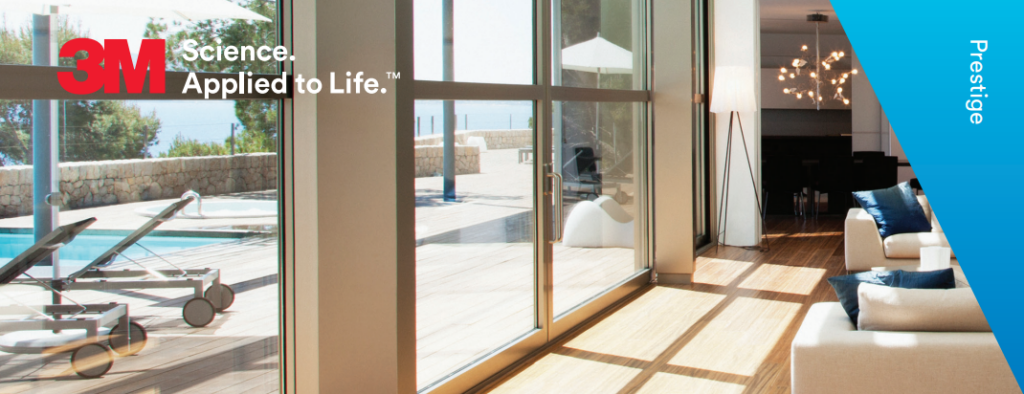The Environmental Impact of Window Film on Your Home
The push for environmental sustainability is stronger than ever. Homeowners are constantly exploring ways to make their living spaces more eco-friendly. One such method, often overlooked, is the home window film installation. This blog delves into the environmental impact of window film on your home and explains why it’s a sustainable choice for your family.


The push for environmental sustainability is stronger than ever. Homeowners are constantly exploring ways to make their living spaces more eco-friendly. One such method, often overlooked, is the home window film installation. This blog delves into the environmental impact of window film on your home and explains why it’s a sustainable choice for your family.
What is Window Film?
Window film is an incredibly versatile material. It consists of a thin laminate that can be expertly applied to the glass surfaces like your home windows. This innovative product’s primary function is to boost insulation, which can lead to reduced energy consumption. Furthermore, it is a steadfast barrier against the detrimental effects of harmful ultraviolet rays (UV rays), which, if left unchecked, can cause furniture, flooring, and other interior items to fade.
All in all, window film offers an economical and effective strategy to enhance your home or vehicle’s energy efficiency, comfort, attractiveness, and safety. Its ease of installation and maintenance and its cost-effectiveness make it an attractive option for those looking to improve their living or working environment.
Types of Window Film for Homes
The market offers many window film types to suit various needs and preferences. One of the popular types is solar window film, specifically engineered to filter out solar heat and glare. Thus, it contributes to a more stable and comfortable indoor climate and potentially lowers cooling costs during those sweltering summer months.
Moreover, decorative window films exist to provide an aesthetic upgrade along with privacy enhancements without sacrificing natural light. These films come in many designs, patterns, and opacity levels, allowing for creative expression while serving functional purposes, like delineating spaces or enhancing safety by making clear glass more visible.
Security films are another significant category designed to fortify glass against break-ins, blasts, and severe weather events. This type of film can hold shattered glass in place, thereby minimizing the risk of injury from flying shards. It can also deter burglars, who could be delayed or deterred by the added difficulty of breaking reinforced glass.
Environmental Benefits
- Reduced Energy Consumption: Window film significantly lowers the heat entering your home, reducing the need for air conditioning during hot months and saving energy.
- Lower Carbon Footprint: By decreasing energy use, window film also reduces greenhouse gas emissions associated with electricity production, contributing to a lower carbon footprint for your household.
- Decreased Demand on HVAC Systems: Enhanced insulation means your heating, ventilation, and air conditioning (HVAC) systems work less hard, extending their lifespan and reducing material waste.
Additional Home Benefits
- UV Protection: It blocks up to 99% of harmful UV rays, protecting your skin and preventing the fading of interior furnishings.
- Increased Privacy and Security: Certain films can deter burglars and provide privacy without sacrificing natural light.
- Aesthetic Appeal: Available in various shades and patterns, window films can also enhance the look of your home.
Creating Sustainability and Longevity with Home Window Films
How to Choose the Right Window Film
- Consider your area’s climate when selecting window film. High temperatures and strong sunlight may require UV protection and heat reduction capabilities to keep interior spaces cooler and protect furnishings from sun damage.
- Take into account the orientation of your windows. South-facing windows in the Northern Hemisphere receive more direct sunlight and may benefit from a stronger heat rejection film than windows in the shade or facing other directions.
- Energy efficiency ratings are crucial in choosing window film. Look for films with certifications from energy conservation programs to ensure they meet rigorous standards and help reduce power consumption by keeping spaces warmer in winter and cooler in summer.
By carefully considering factors such as climate, window orientation, and energy efficiency ratings, you can choose a window film that maximizes sustainability and energy savings while meeting your personal or professional needs. The right window film can significantly enhance your property’s comfort and energy profile.
Summary
Window film stands out as a sustainable and cost-effective choice for eco-conscious homeowners. Reducing energy consumption, lowering carbon emissions, and offering additional benefits like UV protection and aesthetic enhancement is a smart investment for those looking to make their homes more environmentally friendly. Embracing window film technology is a step forward in the global effort towards sustainability, making it an excellent choice for anyone committed to a greener planet.
Frequently Asked Questions (FAQs)
Window film is a thin laminate applied to glass surfaces in residential, commercial, and automotive settings. It enhances insulation, reduces energy consumption, and blocks harmful ultraviolet rays that can cause fading of interior furnishings.
Window film reduces the amount of heat entering a home, which decreases the need for air conditioning during hot months. It also helps retain heat during colder months, leading to reduced energy consumption and lower utility bills.
By reducing energy consumption, window film lowers greenhouse gas emissions associated with electricity production, thereby reducing a household’s carbon footprint. It also decreases the demand on HVAC systems, extending their lifespan and reducing material waste.
Yes, window film can block up to 99% of harmful UV rays, protecting both the skin and interior furnishings from damage and fading.
There are various types of window films, including solar window films for heat and glare reduction, decorative films for aesthetic and privacy purposes, and security films for added protection against break-ins and severe weather.

Read how 3M™ Sun Control Window Film Prestige Series creates smarter windows for a more comfortable home.
Know someone who can benefit from home window tinting?
Share with your friends!
